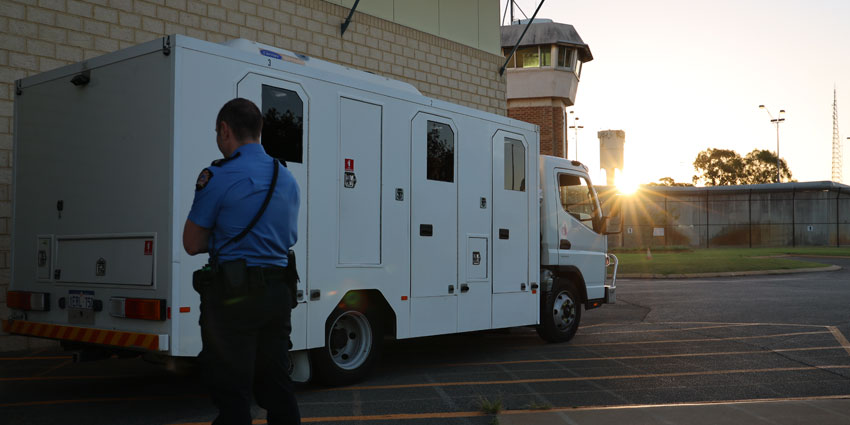
The review identifies that between 2018 and 2021, there were 65,191 transport movements to or from regional prisons with 26% being inter-prison transfers.
Prisoners travelling locally for external activities, being received into custody from police or courts and health appointments were the other most common reasons for regional transport.
The Department also has a strong commitment to transfer prisoners to regional prisons for family, welfare and on-country cultural recognition.
Unfortunately, this cannot always be achieved due to security considerations, health, welfare and rehabilitation needs.
The Corrective Services Commissioner said the review found there was a range of pre-movement processes that rightly considered the health, safety and well-being of prisoners.
“I’m pleased the review recognised that these processes have been embedded into practice and the Inspector observed them to be functioning well,” Commissioner Mike Reynolds said.
“Staff were also found to have a good understanding of the various processes and understood their specific roles.”
Notably the review found that ‘generally, the movement of prisoners was found to be efficient and actively considered the safety, security and humanity of prisoners and staff.’
Whilst the Review was positive in respect of the transport of prisoners there were several areas identified where improvements could benefit both staff and prisoners.
The Department has supported the majority of the fourteen recommendations and has commenced the required work, including a review of the transport policy in line with the findings.
Negotiations are underway to replace the current prisoner transfer fleet and increase the number of vehicles from 34 to 43, with new security and safety features.
The Department thanks the Inspector of Custodial Services for the comprehensive review.


